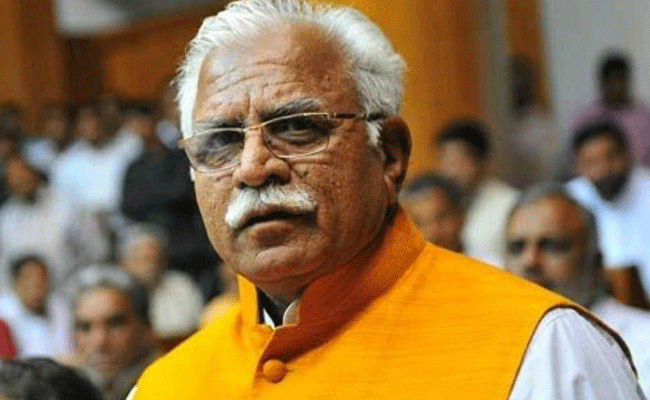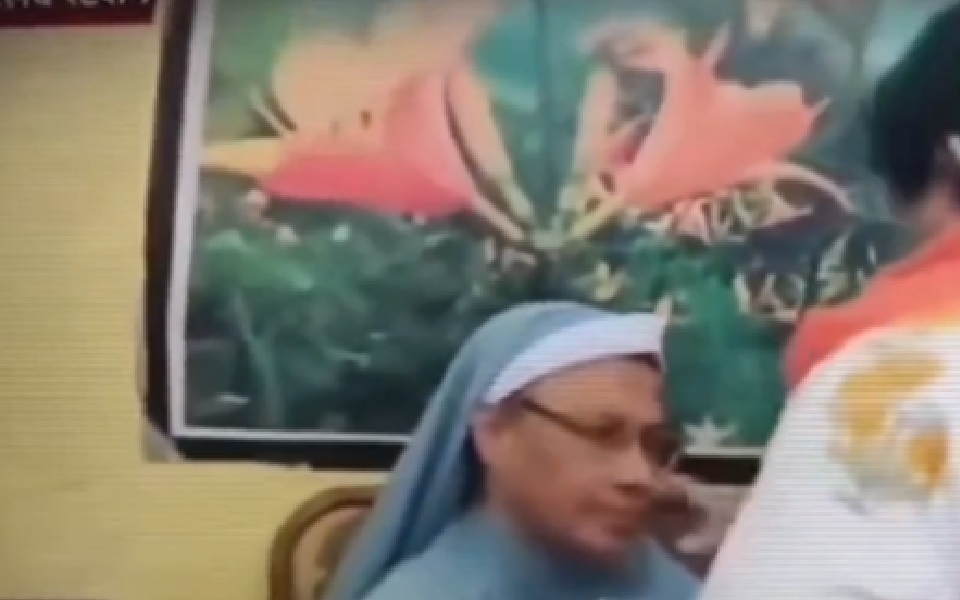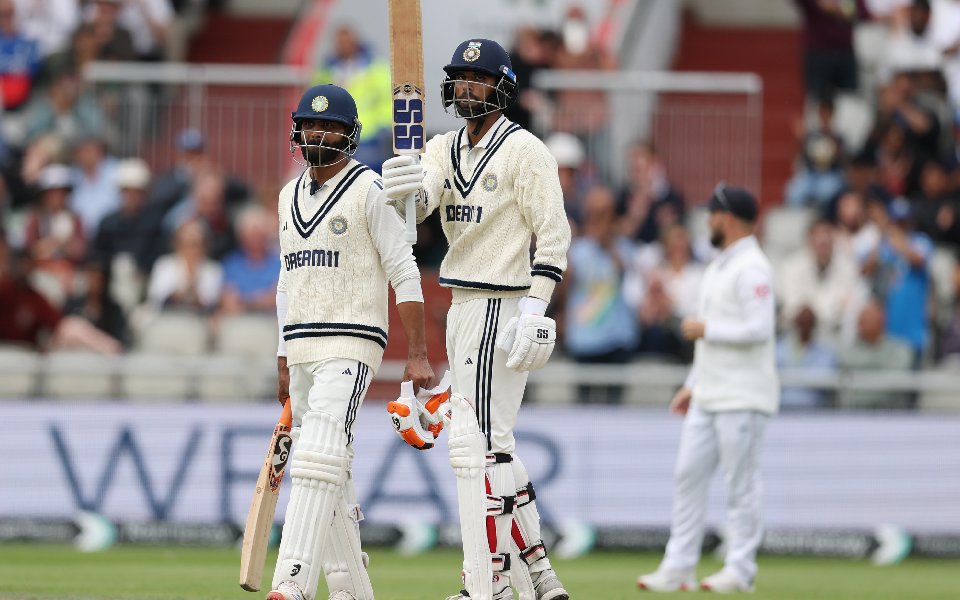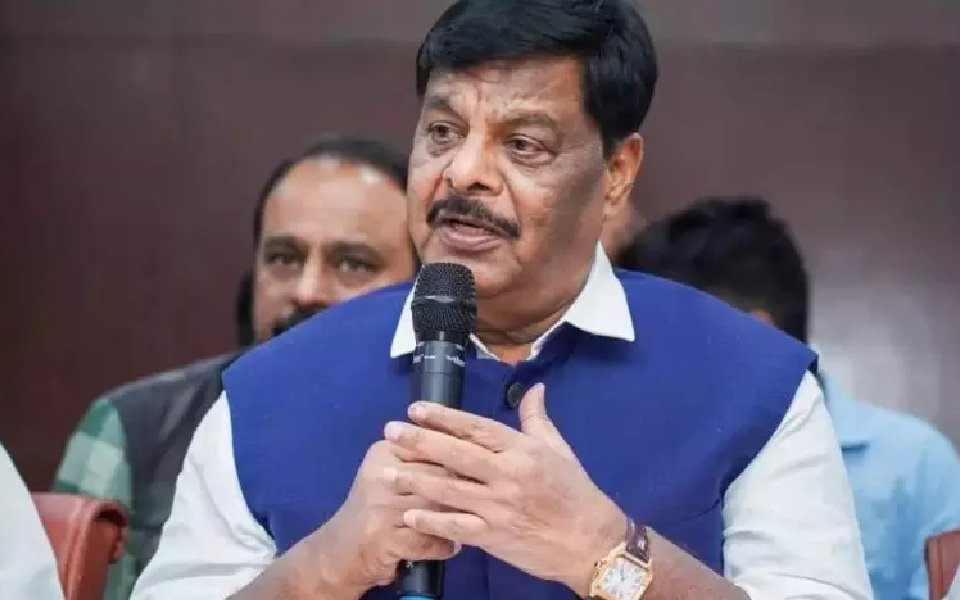Chandigarh (PTI): The Haryana government has notified rules to implement its law against religious conversion through force, undue influence or allurement under which district magistrates will have to publish a public notice and invite objections, if any, to an intended conversion.
The state assembly had passed the Haryana Prevention of Unlawful Conversion of Religion Bill in March this year. The anti-conversion law was notified a month later after the governor's assent.
The new rules, Haryana Prevention of Unlawful Conversion of Religion Rules, 2022, were notified on December 15 under the Act for implementation after the state cabinet recently approved them.
Similar bills were passed in the recent past in BJP-ruled states including Himachal Pradesh and Uttar Pradesh.
According to the notified rules, any person intending to convert to another religion shall, prior to such conversion, give a declaration in Form 'A' to the district magistrate of the district in which he is permanently residing.
"In case the person intended to be converted is a minor, both of the parents or surviving parent, as the case may be, shall give a declaration in Form 'B'.
"Any religious priest and/or any person who intends to organise conversion under the Act shall give prior notice in Form C to the district magistrate of the district where such conversion is proposed to be organised," the rules state.
The district magistrates will have to publish a public notice and invite objections in writing, if any, to the intended conversion.
Such notices will be put up in the district magistrate's office once a declaration is made by a person who intends to convert to another religion willfully "without any misrepresentation, use of force, threat, undue influence, coercion, allurement or by any fraudulent means or by marriage or for marriage".
While making a declaration before the district magistrate, such individuals will have to specify details like reason for conversion, how long they have been professing the religion which they have decided to renounce, whether they belong to a Scheduled Caste or Scheduled Tribe, occupation and monthly income.
"The district magistrate shall on the receipt of written objections to such intended conversion... verify and get the matter inquired into by such officer or agency, as he may deem fit," the rules state.
Upon verification, if the district magistrate finds that force or inducement has been used or is likely to be used in any conversion and that a conversion has taken place without notice, he may refer the case along with all material adduced during the course of the inquiry to the concerned police station for registration of a case and its investigation.
"The district magistrate, if satisfied that the conversion is willful and without any misrepresentation, use of force, threat, undue influence, coercion, allurement or by any fraudulent means or by marriage or for marriage, will issue a certificate to that effect," the rules state.
Any person aggrieved by any order of a district magistrate passed under the relevant provisions of the Act may file an appeal within 30 days from the date of receipt of a certified copy of the order before the concerned divisional commissioner.
A priest or any person who intends to organise the conversion will have to seek prior permission from the district magistrate, giving full details of such a ceremony, according to the rules.
Under the Act, in cases where courts declare such marriage as null and void, the law provides the right to maintenance to the victim husband or wife and the minor child born out of wedlock until he or she turns adult, though it will continue in case the child is physically challenged.
According to the anti-conversion law, the burden of proof as to whether the conversion was not effected through misrepresentation, force, undue influence, coercion, marriage or any other fraudulent means done for the purpose of carrying out conversion lies on the accused.
Further, if the conversion is done by allurement, use of force, coercion or fraudulent means, including the use of digital mode, there is a provision for imprisonment of one to five years and a fine of not less than Rs 1 lakh.
Anyone concealing his religion with an intention to marry shall be punished with imprisonment for a term of not less than three years, which may extend up to 10 years and shall be liable to pay a fine not less than Rs 3 lakh.
Anyone conducting a mass conversion is punishable with imprisonment for a term which shall not be less than five years and may extend up to 10 years and shall also be liable to pay a fine not less than Rs 4 lakh, according to the law.
Let the Truth be known. If you read VB and like VB, please be a VB Supporter and Help us deliver the Truth to one and all.
Batumi (Georgia), Jul 26 (PTI): International Master Divya Deshmukh gave nothing away and held higher-ranked Grandmaster and compatriot Koneru Humpy to an easy draw on Sunday to force the final into a tie-breaker where games of shorter duration will be played to determine the winner.
Divya, who did not make utmost use of her promising opening in the first game of the match, was far more composed against a Queen pawn opening and faced little trouble playing with black pieces.
Humpy, got the optical advantage with her pair of bishops out of the opening but Divya knew that if she placed her knights perfectly, white will not be able to create many problems. As it happened in the game after two minor pieces, the pair of rooks also changed hands and the queen-and-minor-piece endgame only offered little hope.
Humpy tried to make some headway with a pawn sacrifice in the endgame but in the process her bishop pair was gone, and though a pawn plus, Divya had to cover some weaknesses.
After the dust settled, Humpy recovered the pawn back and Divya repeated the position through checks to sign peace in 34 moves.
The tiebreaker will see two games of 15 minutes each with a 10 second increment after every move is played.
If the scores are still level, the players will play another set of 10 minutes per game with a 10 second increment. If the tie doesn't get resolved, it will be two more games of five minutes plus three second increment.
Should the deadlock continue, one game will be played with three minutes to both players with a two second increment unless one player ends up winner.
In the play-off for the third place between China's Zhongyi Tan and Lei Tingjie, the match looked headed towards a draw.
Results: Koneru Humpy (Ind) drew with Divya Deshmukh (Ind); Lei Tingjie (Chn) playing Tan Zhongyi (Chn).





